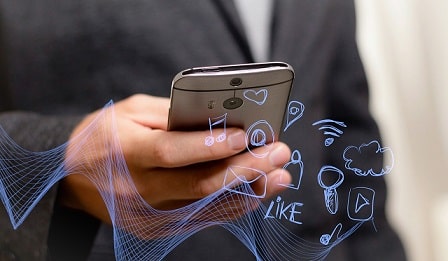It’s practically inevitable that travelers at airports will go online to check email or surf the Internet while waiting to board.
The problem with that is there are risks when jumping onto public Wi-Fi in airports and truthfully on any public Internet connection.
Literally millions of travelers use public Wi-Fi perhaps not realizing these connections very often lack appropriate measure for security. It is at this point that cyber threats find an endless buffet of security breaches.
In research conducted by Geonode, approximately three-quarters of Wi-Fi airport networks are open to cyber attacks with 1 in 3 users opening themselves up to having their sensitive information shared on unsecured networks.
Passwords and financial data are quite often shared via unsecured Wi-Fi connections.
These airport Internet connections open users up to cyber threats that include not only data interception but man-in-the-middle attacks and malicious hotspots.
It would be wise to consider using secure browsing options such as VPNs.
How to Stay Safe
Use a VPN (Virtual Private Network)
A VPN encrypts your data and routes it through a secure server, making it more difficult for cybercriminals to intercept or access your information.
Enable Two-Factor Authentication (2FA)
Whenever possible, enable 2FA on your accounts. This adds an extra layer of security by requiring a second form of verification, such as a text message or authentication app, in addition to your password.
Keep Software and Apps Updated
Regularly update your operating system, web browsers, and apps to ensure you have the latest security patches.
Avoid Using Public Wi-Fi for Sensitive Activities
Refrain from accessing or sharing sensitive information, such as online banking or personal identification, when connected to public Wi-Fi networks.
Use HTTPS Websites
Make sure the websites you visit use HTTPS, which indicates that the data exchanged between your device and the website is encrypted.
Turn off File Sharing and Wi-Fi When Not in Use
Disable file-sharing options on your device and turn off Wi-Fi when you’re not using it to prevent unauthorized access to your files or device.
Use Antivirus and Firewall Software
Install reliable antivirus software and enable a firewall on your device to protect against malware and other threats.
Be Cautious of Public Charging Stations
Cybercriminals can exploit public charging stations to install malware or steal data from your device. Use your own charger and plug it into a wall outlet or use a portable power bank.
Beware of Fake Wi-Fi Hotspots
Verify the legitimacy of a public Wi-Fi network before connecting to it. Cybercriminals often create fake hotspots with similar names to trick users into connecting.
Use Strong Unique Passwords
IMEX Frankfurt May 23-25 is where the global business events community comes together for four exhilarating days every year. Where more than 3,000 meeting planners meet with 2,500-plus suppliers from every corner of the globe. This is where powerful business connections that offer real ROI are made. Whether you’re an events newbie or a pro (or anything in between), IMEX 2023 is exactly where you need to be. REGISTER FREE FOR IMEX NOW




